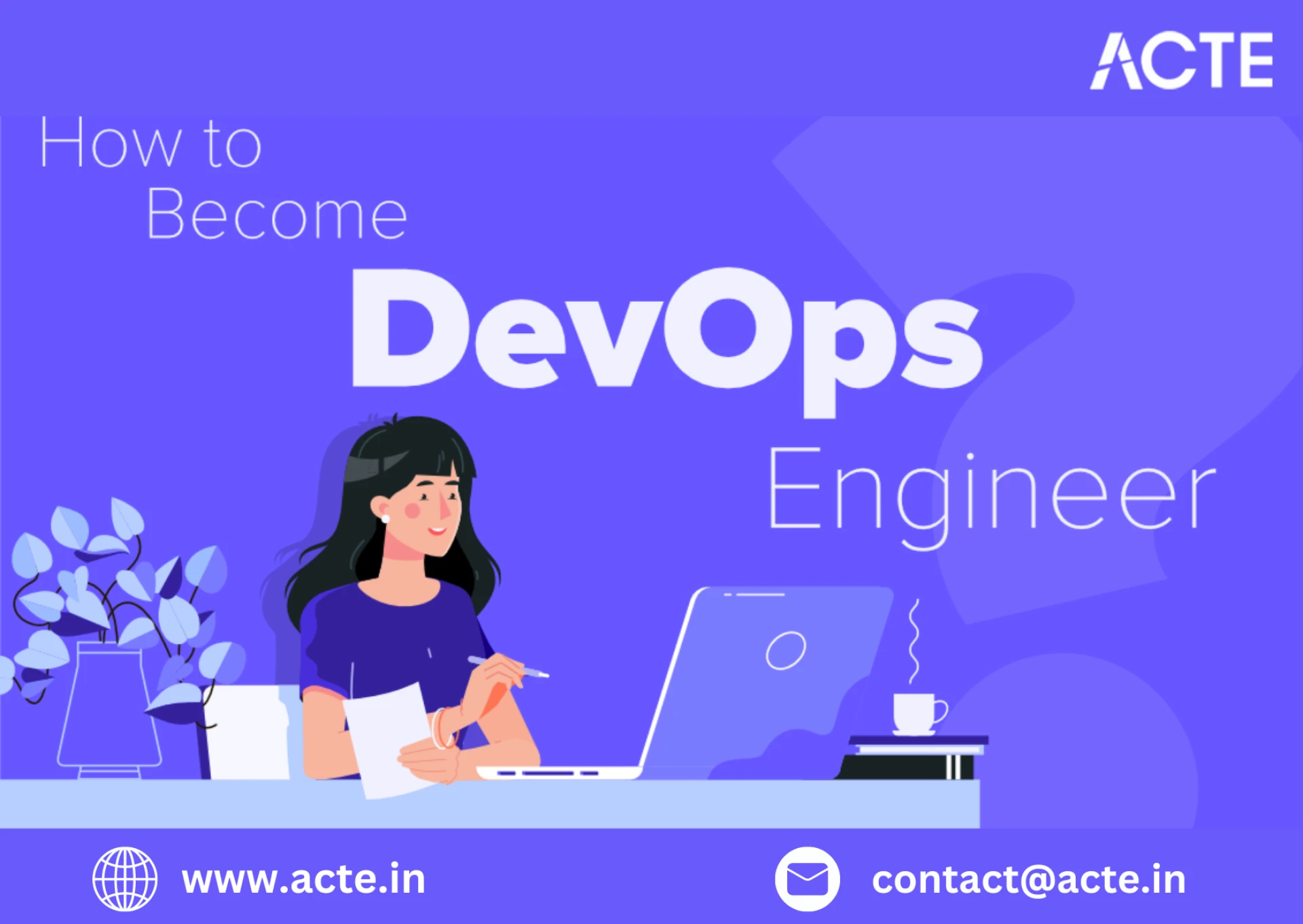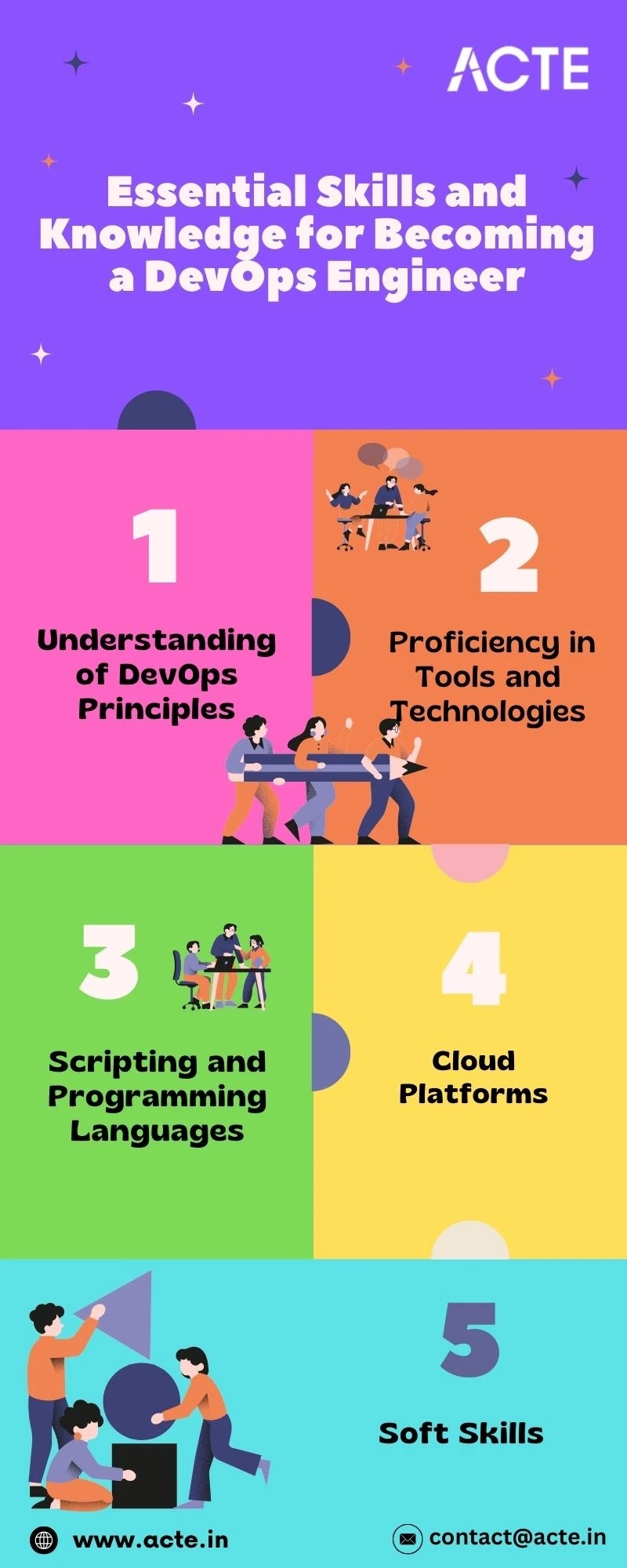In the rapidly evolving world of technology, DevOps engineers serve as linchpins, pivotal in optimizing the synergy between software development and operational efficiency. Their primary mission is to bridge the gap between development (Dev) and operations (Ops) teams, emphasizing automation, continuous integration and deployment (CI/CD), efficient infrastructure management, and the seamless delivery of software solutions. Enrolling in a respected Devops Training in Pune can help people who want to become experts in the field gain the skills and information necessary to successfully navigate this ever-changing environment.

Key Skills and Expertise
To thrive as a DevOps engineer, proficiency in essential skills and knowledge areas is paramount:
Core DevOps Principles: Master automation, CI/CD pipelines, infrastructure as code (IaC), and effective monitoring practices.
Tools and Technologies: Familiarize yourself with tools such as Docker, Kubernetes, Jenkins, Git, Ansible, Terraform, as well as monitoring tools like Prometheus and ELK stack.
Scripting and Languages: Develop expertise in scripting languages (e.g., Bash, Python, Ruby) and understand programming languages (e.g., Java, JavaScript).
Cloud Platforms: Gain proficiency in managing applications on AWS, Azure, or Google Cloud Platform (GCP) in a cloud-native environment.
Soft Skills: Cultivate strong communication, collaboration, and problem-solving abilities to collaborate effectively across teams.

Educational Pathways and Development
Embark on a structured approach to enhance your DevOps career:
Formal Education: While not mandatory, a degree in computer science or related fields provides a solid foundation.
Certifications: Pursue certifications like AWS Certified DevOps Engineer, Certified Kubernetes Administrator (CKA), and those from Docker and Jenkins.
Self-Study and Online Courses: Enroll in DevOps courses to deepen your understanding and practical application.
Gaining Practical Experience
Sharpen your skills through hands-on experience and practical application:
Projects: Undertake personal or open-source projects to implement CI/CD pipelines, automate infrastructure, and utilize containers.
Internships and Entry-Level Roles: Seek internships or entry-level positions to gain real-world exposure and mentorship.
- Continuous Learning: Stay updated with industry trends, attend conferences, and engage in DevOps communities for ongoing learning.
Enrolling in Devops Online Course can enable individuals to unlock DevOps\' full potential and develop a deeper understanding of its complexities.
Building Your DevOps Career
Navigate your career path effectively:
Specialization: Consider specializing in areas like DevSecOps or site reliability engineering (SRE) to deepen expertise.
Networking: Build a professional network through industry events, LinkedIn connections, and active participation in DevOps communities.
Career Progression: Aim for roles like DevOps lead or architect as you gain experience, continually refining skills and knowledge.
Conclusion
To thrive as a DevOps engineer, it\'s essential to blend technical expertise with practical experience and a deep understanding of DevOps principles. By prioritizing ongoing learning, engaging in hands-on projects, and fostering effective collaboration, you can build a fulfilling career influencing the evolution of software development and IT operations. Embrace the dynamic challenges and abundant opportunities within DevOps, and embark on a transformative journey within the tech industry today.

